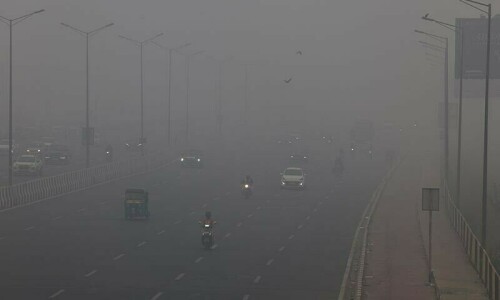KUTUPALONG: Myanmar leader Aung San Suu Kyi blamed fake news and a misinformation campaign for fueling a crisis that the UN says has now pushed more than 125,000 minority Rohingya Muslims into Bangladesh with tales of atrocities at the hands of security forces.
Suu Kyi told Turkish President Recep Tayyip Erdogan in a phone call that her government is defending “all the people” in western Rakhine state, according to a government statement. The violence and civilian suffering have prompted international condemnation and resonated particularly in many Muslim countries.
Erdogan’s office in Ankara said that the Turkish leader told Suu Kyi that disproportionate use of force against the minority group should be avoided and maximum care taken to avoid harming civilians.
Suu Kyi’s office said that she told Erdogan that his deputy prime minister was a victim of fake news when he posted photos purportedly showing dead Rohingya that were not related to the crisis. The photos on Mehmet Simsek’s Twitter account had been taken down.
Suu Kyi said that such misinformation helps promote the interests of “terrorists”, a reference to Rohingya insurgents whose deadly attacks on Myanmar security posts Aug 25 triggered the latest military crackdown and streams of refugees.
The military has said nearly 400 people, most of them insurgents, have died in clashes. Security forces responded to the attacks with days of “clearance operations” the government says were aimed at rooting out insurgents it accuses of setting fire to Rohingya villages.
Many displaced Rohingya, however, said it was Myanmar soldiers who set their homes aflame and fired indiscriminately around their villages in Rakhine state. Rohingya Muslims have long faced discrimination in the majority-Buddhist Southeast Asian country.
A Rohingya Muslim whom The Associated Press reached by phone said that she and thousands of fellow villagers driven from their homes by the violence in Myanmar are now stuck along the coast, hoping to flee to nearby Bangladesh by boat.
The 18-year-old provided AP with cellphone photographs she took on Tuesday along the beach in southern Maungdaw township in Rakhine state. Several of the photos show hundreds of people sitting on the ground, with small sacks or plastic bags holding their meagre belongings.
The teenager, who spoke on condition of anonymity out of concern for her safety, said her family’s house was burned Aug 25, right after Rohingya insurgents attacked Myanmar border guard police outposts.
The number of Rohingya fleeing Rakhine has reached more than 125,000, 80 per cent of whom are women and children, said Unicef Executive Director Anthony Lake.
“Many more children in need of support and protection remain in the areas of northern Rakhine State that have been wracked by violence,” he said in a statement, adding that the UN refugee agency had no access to trouble spots in northern Rakhine state.
Turkey said that Myanmar agreed to allow its aid officials to enter Rakhine state with a ton of food and goods for Rohingya.
UN Secretary-General Antonio Guterres said it was crucial that Myanmar’s government immediately give Rohingya either nationality or legal status so they can lead normal lives and freely move, find jobs, and get an education.
Published in Dawn, September 7th, 2017














































Dear visitor, the comments section is undergoing an overhaul and will return soon.